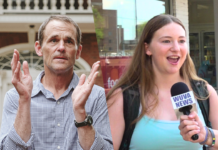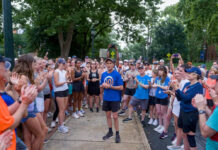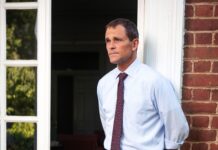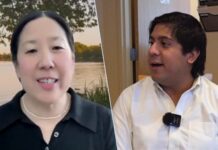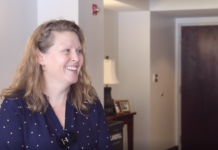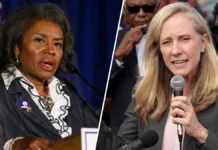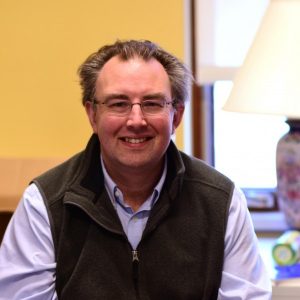
The events of August 11th and 12th sparked widespread debate surrounding the University’s role in handling monuments to Confederate and slave owning individuals on Grounds. WUVA News sat down with politics professor Colin Bird to get a faculty member’s perspective on protests, statues, and – perhaps most importantly – the University’s response to white supremacists gathering on the Lawn just over a month ago.
“The general feeling among my colleagues is that the University’s response at various points along the way has been patchy at best and slow and inadequate,” he says. “There is quite a bit of dissatisfaction with the way that the University at top leadership levels has actually handled the situation.”
But Bird says that the protest on August 11th – a night when white supremacists brandished lit torches on the Lawn, ultimately clashing with counter protestors near the Rotunda – did spark debate on the issue of whether or not to change the legal classification of the Lawn.
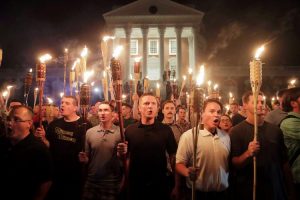
“There is a rule that says you can’t take weapons and firearms into university facilities – that’s usually interpreted as buildings,” he explains. “But some people of the University want to try to define the Lawn as a facility so that it wouldn’t be permissible to take weapons into that space. It’s a legal question, but you could argue that the Lawn could be seen as a hallway.”
When asked about the removal of statues, Bird made it clear that an essential part of American history is not lost; in fact, something might even be added.
“It would itself be an event. Statues commemorate things,” he remarks about the takedown of statues in and around Charlottesville. “They are not the history themselves.”
The upholding of history has remained a key argument for those who want to keep statues of Confederate soldiers like Robert E. Lee, a name synonymous with controversy in Charlottesville and beyond. To Bird, there is a difference between this argument and the overarching views of the white supremacists who came in August.
“You’re only as entitled to the opinions you hold as there are good reasons to hold those opinions,” he says. “The claims that are being advanced by these white supremacist groups… are empirically false.”
Bird says that UVA students and professors – the latter of which he notes are working on related initiatives right now – have to take it upon themselves to change the narrative. While he disagrees with the idea that there can ever be a final “reclaiming” of Grounds, he says that there has to at least be a change in the dialogue around race- and religion-based hatred.
“If there’s any reclamation to be made here it will occur when students and faculty members are comfortable calling out things for what they are and not dancing around it in the name of civility and equal respect,” he remarks. “There are some views that are just dangerous and indefensible and they have to be called those things. Because that’s what they are.”







